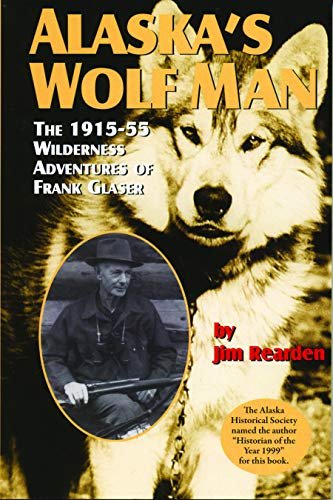WapitiBob
Well-known member
WY odds reports for a backup Elk hunt in case I don't draw AZ.
Follow along with the video below to see how to install our site as a web app on your home screen.
Note: This feature may not be available in some browsers.
Always found Hemingway a little difficultJust starting A Farewell to Arms- Ernest Hemingway.
Anyone else find it interestingly difficult to read early 20th century literature considering the sentence structure and punctuation? Extremely different than I was taught in school.

Takes awhile to get used to his style. But once you do it gets easier. At least it did to me. Found the same to be true with Jim HarrisonAlways found Hemingway a little difficult
Don't know what is being taught currently but, long time ago Hemingway and the like were required reading in HS. Even so, he didn't become a favorite author for me.Always found Hemingway a little difficult
Old Man and the Sea was required reading when I came through, hope it still is - if it isn't, it'll at least be required reading in my household when my boys are old enough.Another I am enjoying:
Don't know what is being taught currently but, long time ago Hemingway and the like were required reading in HS. Even so, he didn't become a favorite author for me.
Rightfully speechless. …This is the actual observer footage of the events for which Mr. Chapman was awarded TWO MOHs.
My wife teaches AP English. By Spring semester she hopes to have the kids dialed in for The Sun Also Rises. It's interesting to hear how her students respond to this novel.Old Man and the Sea was required reading when I came through, hope it still is - if it isn't, it'll at least be required reading in my household when my boys are old enough.
I read it in early HS. It was the first book I remember loathing, at least in the moment. I didn't know that anyone could/would ever write a book that wasn't light and happy or at least have a happy ending. Who would want to make others feel pity, despair, or resentment? However, it, and for Whom the Bell Tolls, got me introduced to Hemingway, and then to his short stories, which IMO are what make Hemingway great, similar to Harrison.My wife teaches AP English. By Spring semester she hopes to have the kids dialed in for The Sun Also Rises. It's interesting to hear how her students respond to this novel.
Most people read for instant gratification without any attempt to process any further. ( myself included)I read it in early HS. It was the first book I remember loathing, at least in the moment. I didn't know that anyone could/would ever write a book that wasn't light and happy or at least have a happy ending. Who would want to make others feel pity, despair, or resentment? However, it, and for Whom the Bell Tolls, got me introduced to Hemingway, and then to his short stories, which IMO are what make Hemingway great, similar to Harrison.
The more I read Hemingway's works, his bio, and his denouement, the more all three merged. A tragedy of toxic masculinity.I read it in early HS. It was the first book I remember loathing, at least in the moment. I didn't know that anyone could/would ever write a book that wasn't light and happy or at least have a happy ending. Who would want to make others feel pity, despair, or resentment? However, it, and for Whom the Bell Tolls, got me introduced to Hemingway, and then to his short stories, which IMO are what make Hemingway great, similar to Harrison.
Quite possibly^...but still brilliant.The more I read Hemingway's works, his bio, and his denouement, the more all three merged. A tragedy of toxic masculinity.
War time is mostly toxic masculinity, no?Quite possibly^...but still brilliant.
I go back and forth on this.Most people read for instant gratification without any attempt to process any further. ( myself included)
The value of such a class as my wife teaches is in getting kids to realize that there is much more to consider, meaning behind the words. Interpretation is subjective, so maybe there isn't an actual right or wrong understanding, but the process of simply training to think for a second is pretty significant. This, especially in today's world, where everything is laid out one click away.
Same reason we read McCarthy or Faulkner...gory human condition written with genius phraseology is riveting.I go back and forth on this.
Yes, there is clearly a metric shitton of value is being able to see, think, and maybe understand at a deeper than surficial level.
But isn't there a damn near equal value is just being happy? One of those, the happier you are, the happier you'll be? What is the real value is reading about people being shitty to one another and calling it cool?
There's always value to a beach read, but the real value to reading about shitty people being shitty to one another is that's real life - it doesn't fit in neat little boxes of white hat/black hat, with a structured beginning, middle and end.But isn't there a damn near equal value is just being happy? One of those, the happier you are, the happier you'll be? What is the real value is reading about people being shitty to one another and calling it cool?